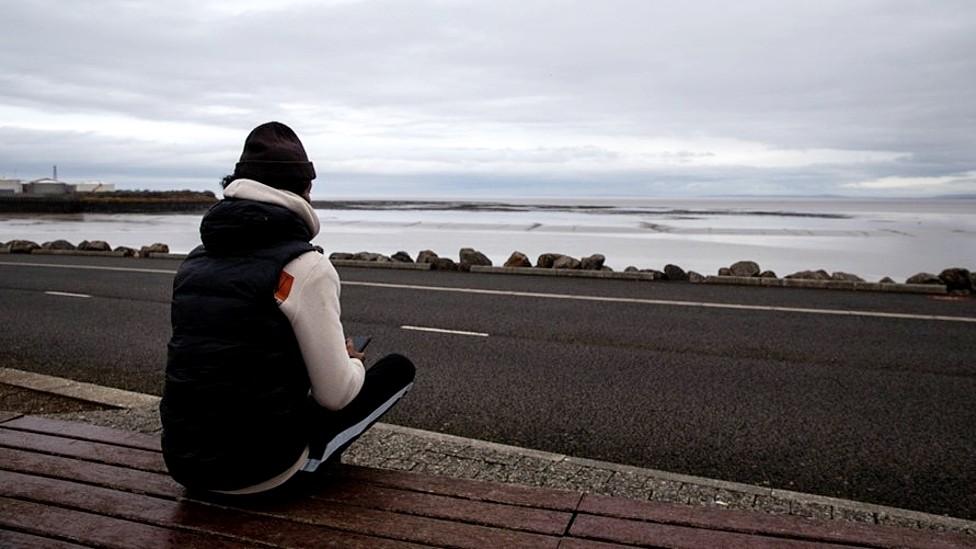Asylum seeker hotel plans fought by Flintshire villagers
- Published
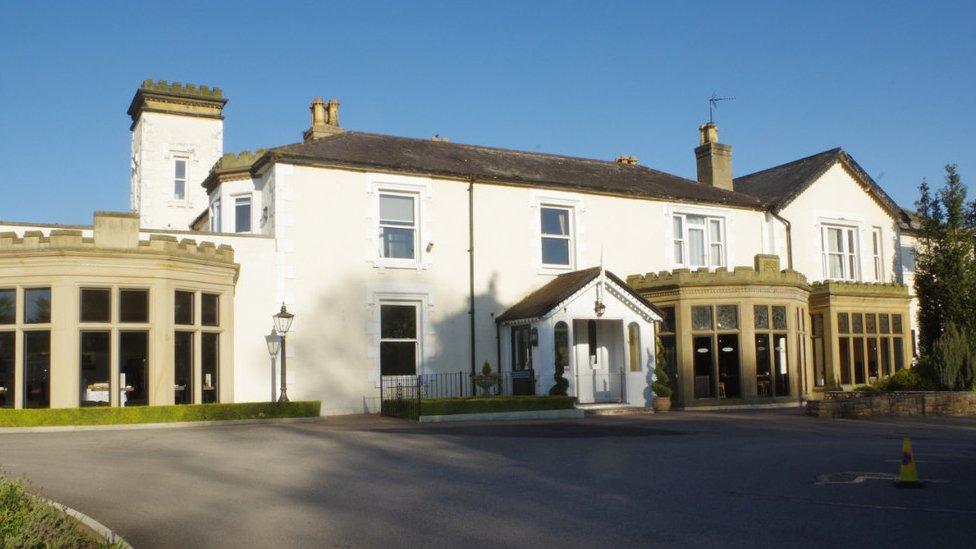
Northop Hall Country House Hotel closed during the first Covid lockdown of 2020
Villagers have said they will fight plans to house 400 asylum seekers in a former hotel.
Northop Hall Country House Hotel's pre-application consultation has been re-opened until 17 May.
Northop Hall Village Action, formed to oppose the plans, said it was the "wrong plan" in the "wrong place".
The Home Office said it would "work closely with councils and key partners to manage the impact".
Once the consultation period runs out, Paymán Holdings 3 Ltd, external intends to submit a formal planning application to Flintshire council.
The website outlining the project said about 250 single men would be housed in temporary units in the hotel cark park with another 150 in the existing 37-bedroom building.
After seven years, the building would revert to being a hotel.
The Welsh Refugee Council (WRC) said asylum seekers were "fleeing war and persecution and must be treated with dignity and respect while their asylum claims are processed", and the plans did "not add up".
The accommodation would be operated by Clearsprings Ready Homes (CRH), the Home Office appointed operator in Wales.
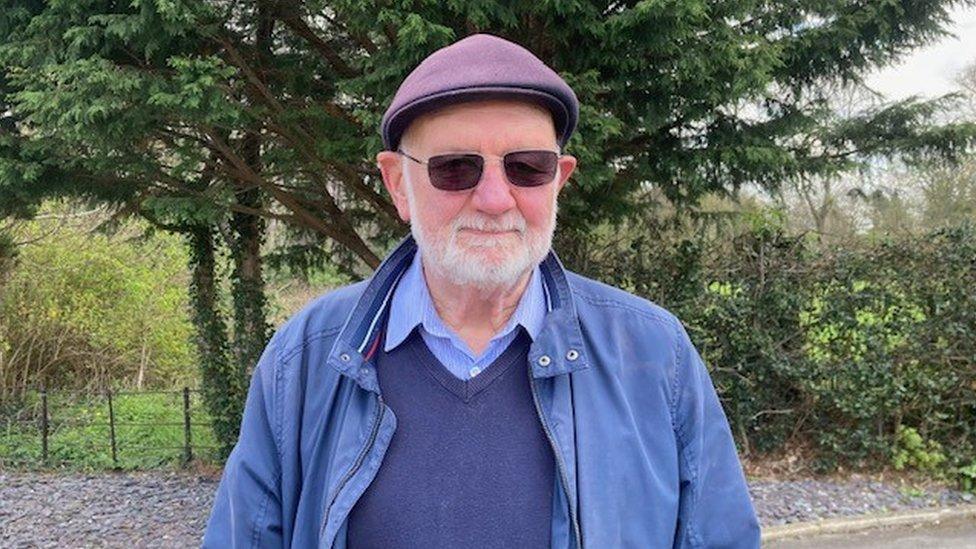
John Gollege said the proposals were "a recipe for disaster"
Chairman of Northop Hall Community Council, John Gollege, who lives near the site, said he was in "total shock" when he heard about the plans for the village, which has a population of about 1,500 people.
He said: "400 single males will increase the total population of the village by 25%. I can't believe there will not be a drain on community facilities which are already over extended."
He said, with only three bus services in the village each day, people would have "nowhere to go".
There are also three private houses and a cattery within the grounds of the site, which is set back from the road up a long driveway.
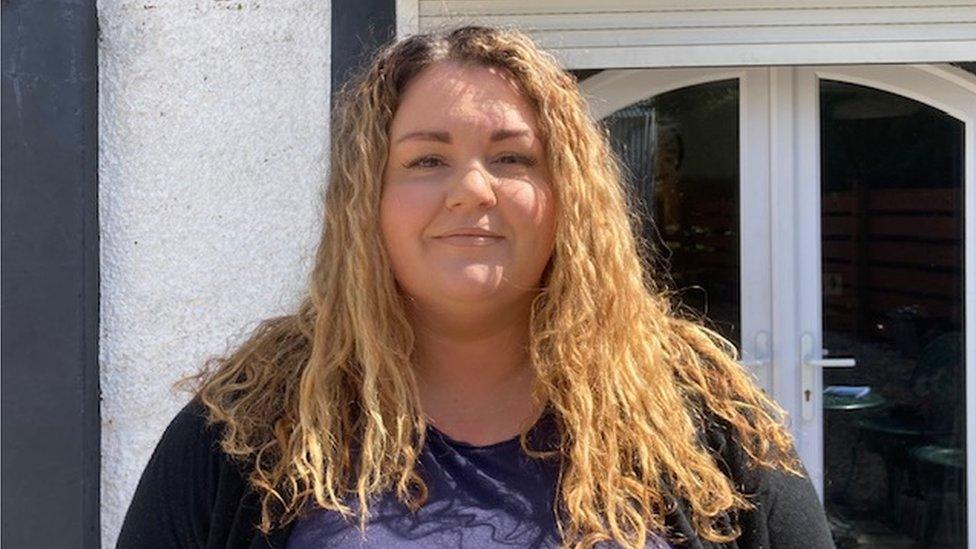
Kate Banjo says "you can only imagine" what it will be like for 150 people living in a 37-bedroom hotel
Kate Banjo lives in one of the houses that shares a boundary wall with the former hotel's function room.
"My concern is there would be people... 400 men who we don't know. They could be from the local town, they could be from Mold, it doesn't matter."
She added that she was concerned about the impact on the mental health of hundreds of men living in close proximity with each other, unable to work and in an area where "there's nothing here".
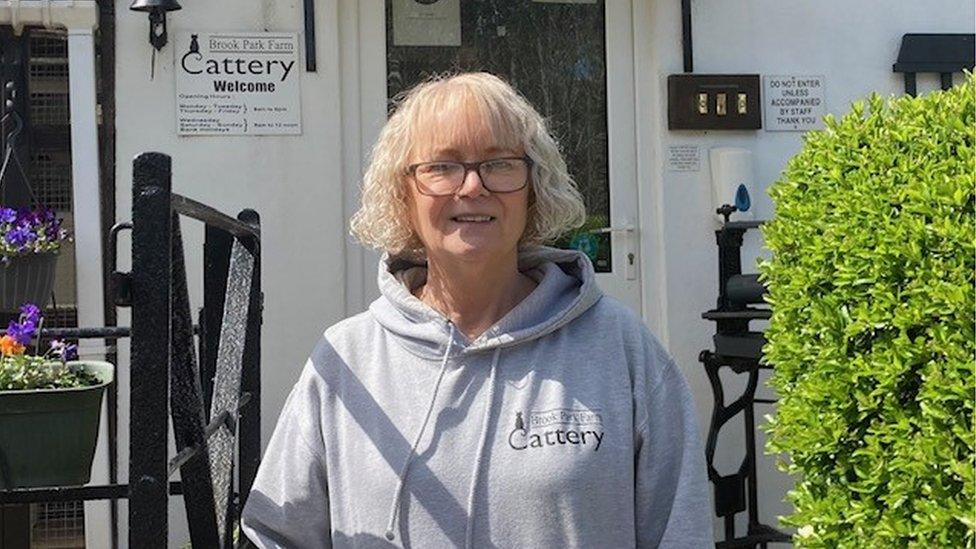
Gill Davies says she cannot "comprehend" the plans
Gill Davies, who runs the Brook Park Farm Cattery on the site and lives in one of the houses next door, said if the plan went ahead "life would change completely".
The hotel closed its doors during the first Covid lockdown and was sold last year to Paymán Holdings 3 Ltd company director Na'ím Anís Paymán.
It was initially thought he would continue to operate it as a hotel, but it has not re-opened and Mr Paymán did not want to make any comment on the proposal.
But the planning, design and access statement, which forms part of the consultation, said ratios of staff and levels of safeguarding and security would be high, and the proposal "strongly aligns with national and local objectives".
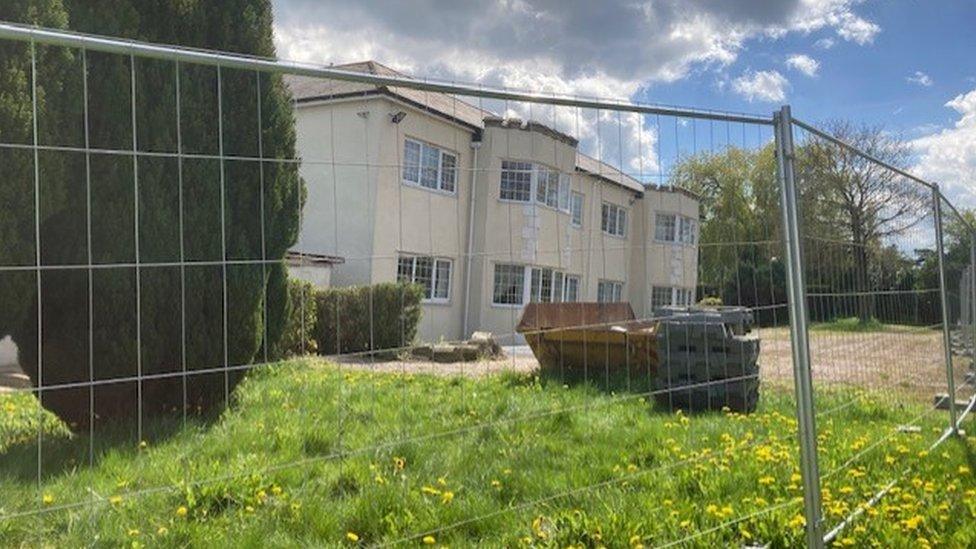
Paymán Holdings 3 Ltd is the company that bought the former hotel
Delyn MP Rob Roberts has written to Immigration Minister Robert Jenrick asking for the Northop Hall site to be ruled out as an asylum hostel and raised the issue in the House of Commons.
The WRC said: "Squeezing people into bad accommodation is negligent and produces poor health outcomes, as seen in Penally Barracks and Manston.
"We are also concerned about the location, far away from any services and transport links, which is a further barrier to people rebuilding their lives in Wales. Asylum seekers deserve the right to adequate and suitable housing."
The organisation called on the Home Office to "speed up delays in the asylum system".
The Home Office said: "These accommodation sites will house asylum seekers in basic, safe and secure accommodation as they await a decision on their claim.
"We understand the concerns of local communities and will work closely with councils and key partners to manage the impact of using these sites, including liaising with local police to make sure appropriate arrangements are in place."
Flintshire council said pre-application consultations were run and managed by applicants and it had not received a formal planning application.

WHO DO WE THINK WE ARE?: Huw Edwards explores modern Welsh identity
HIRAETH: The Ukrainian women in Wales, longing for a place to call home

- Published21 December 2022
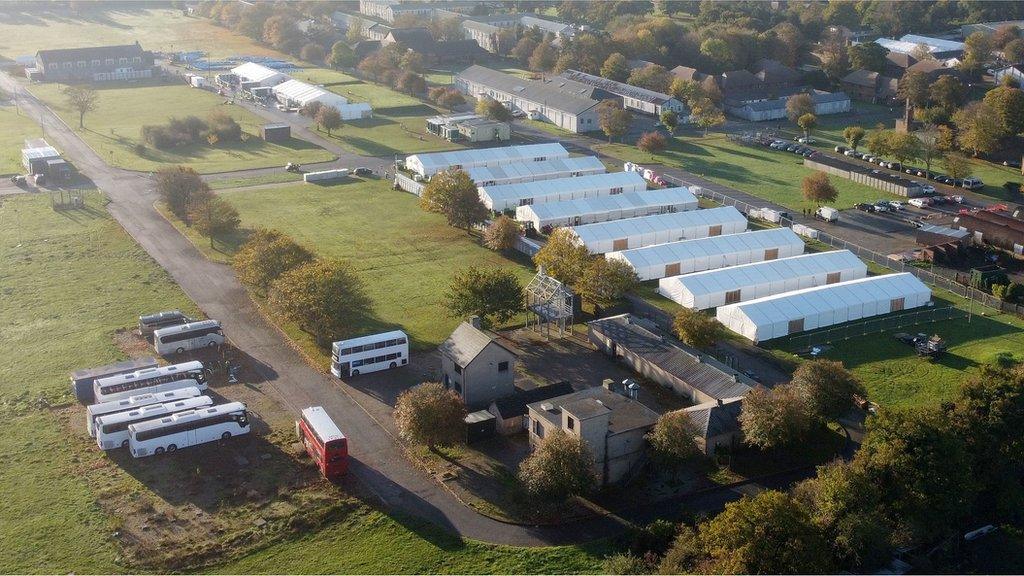
- Published20 April 2023
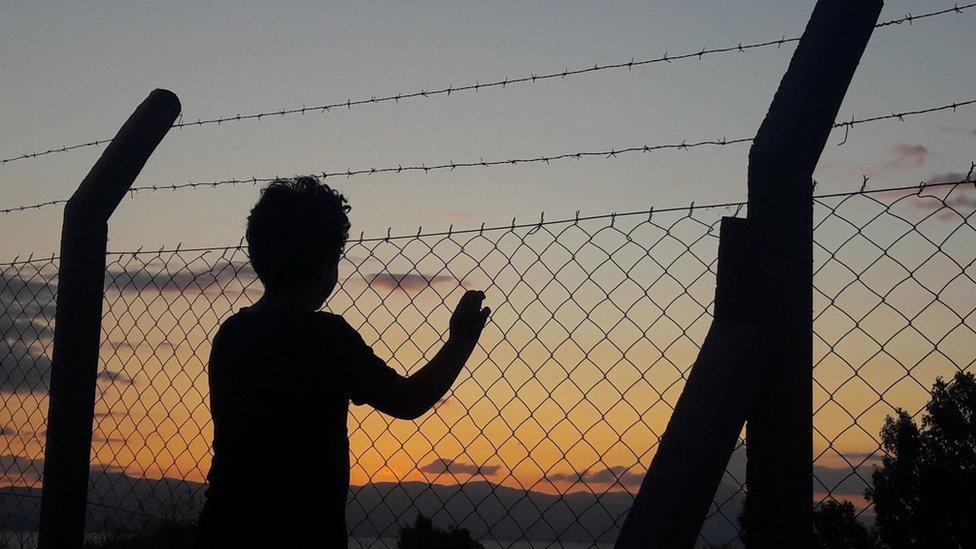
- Published10 April 2023
